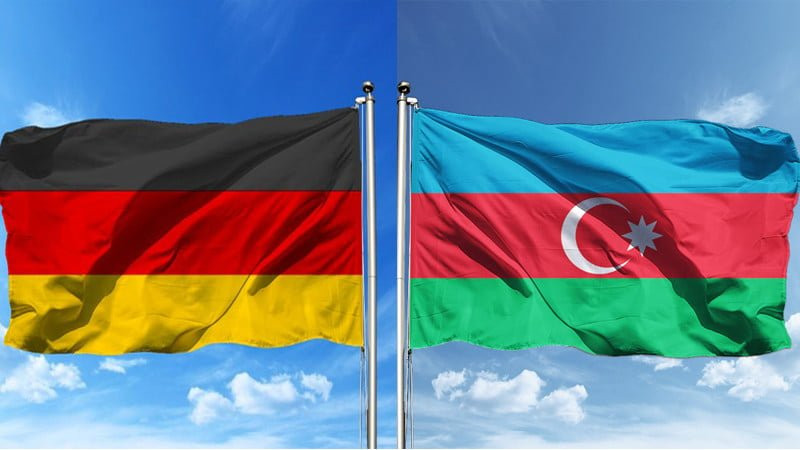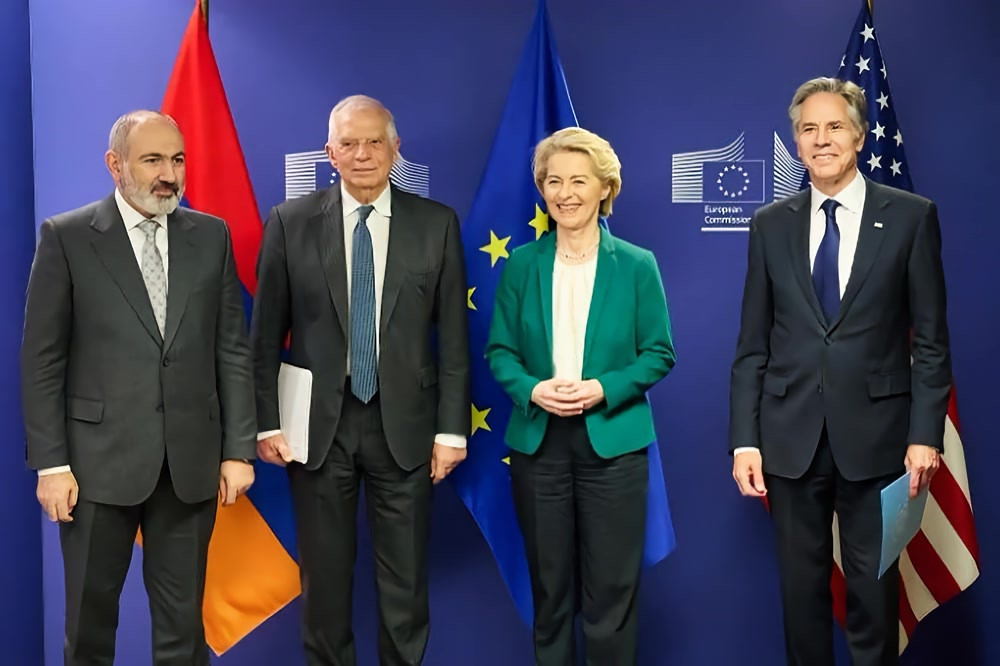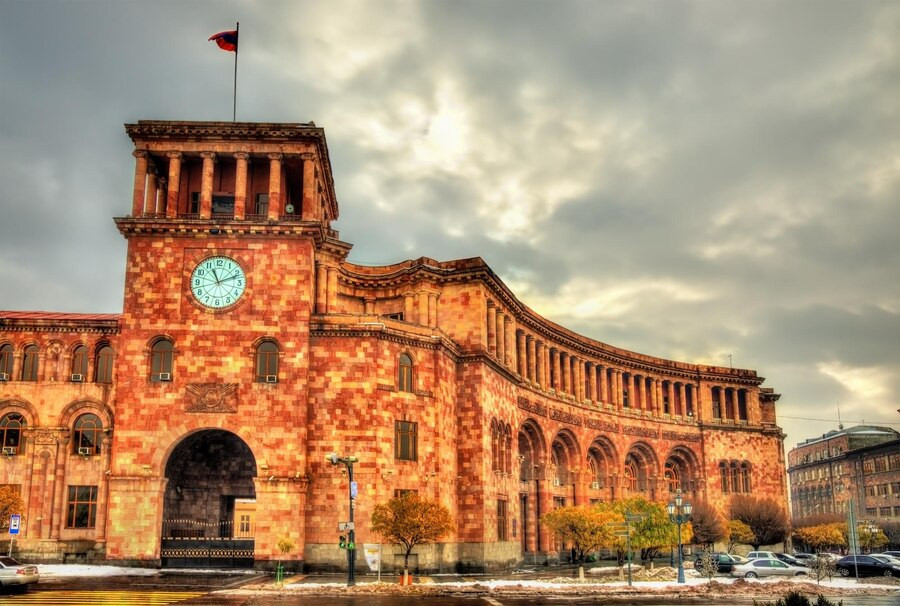As global political uncertainty rises, Azerbaijan and Germany are actively working to deepen and broaden their cooperation in response to emerging challenges. This conclusion is drawn from examining the outcomes of Azerbaijani President Ilham Aliyev’s recent visit to Germany. President Aliyev attended the high-level meeting of the 15th Petersberg Climate Dialogue from April 25-26, 2024, held in Berlin, Germany. The Petersberg Climate Dialogue is an annual platform for informal, high-level political discussions focused on advancing international climate negotiations and promoting tangible climate action.
During the visit, climate policy and the conflict between Armenia and Azerbaijan were primarily addressed by President Aliyev and Federal Chancellor Scholz. According to Scholz, there are opportunities to resolve these issues peacefully. He reiterated that Germany is ready to support the parties in finding a long-term and lasting solution. Regarding climate policy, Scholz stated that the region holds great potential for cooperation in green and hydrogen energy. President Aliyev emphasized Azerbaijan's efforts to export green energy to Europe, in addition to its natural gas supplies.
On the sidelines of the Petersburg Climate Dialogue 2024, German Foreign Minister Annalena Baerbock mentioned that COP29 in Baku presents an opportunity to work towards a brighter future in the Southern Caucasus, adding that a peace treaty between Armenia and Azerbaijan is critical. President Aliyev noted that the development of relations between Germany and Azerbaijan is of great importance not only for the two countries but also for the overall development and stability of the South Caucasus region.
The contribution of Berlin to the normalization process of Azerbaijan-Armenia relations should be specially noted. It is important to emphasize that, on the initiative of German Foreign Minister Annalena Baerbock, a recent meeting between the foreign ministers of Azerbaijan and Armenia was organized in Germany.
Recall that Germany’s Chancellor Olaf Scholz also participated in the summit of the European Political Community in Chișinău. Germany, as one of the major powers within the EU, aims to counterbalance France, which has been accused by Azerbaijan of having a flagrantly pro-Armenian policy. Therefore, the position of the French government, which regards Armenia as a close partner in the South Caucasus, is particularly worth examining to understand the increasing nature of Azerbaijan-Germany relations.
It should be recalled that Azerbaijan and Germany have enjoyed good and friendly bilateral relations since Azerbaijan gained independence. In the current context, this 32-year-old diplomatic relationship has taken on increased importance due to Azerbaijan’s rise, particularly as manifested by a new reality formed in the South Caucasus after the victory in the Second Karabakh War. The trajectory of Azerbaijani-German relations shows that pragmatic cooperation has served as the cornerstone of bilateral ties.
Economic cooperation is clearly an important pillar of bilateral relations. Azerbaijan has emerged as a major economic partner in the South Caucasus for Germany. Germany’s only Chamber of Commerce Abroad in the region, which opened on November 12, 2012, is based in Baku. It is the second foreign trade chamber of Germany in the CIS countries, following the one in Moscow. Approximately 150 companies from both sides are members of the Chamber. With its rapidly growing volume of trade, Germany is Azerbaijan’s second biggest trading partner in the EU after Italy and among the top ten most important trading partners worldwide in the first quarter of the year. Moreover, Azerbaijan is among the ten most important countries supplying crude oil to Germany.
In addition to further expanding traditional areas of economic cooperation, German companies are now particularly interested in collaborating with Azerbaijan in transitioning to green energy and expanding joint renewable energy projects. Given Azerbaijan’s ambitious targets for expanding renewable energy capacity, this could be an incentive to enhance the scope of collaboration. In other words, various spheres offer potential for further involvement of German businesses in Azerbaijan, including the development of renewable energies, the planned launch of green hydrogen production, as well as transport, logistics, and agriculture sectors. In this regard, the rebuilding of Karabakh after its liberation has created considerable opportunities for German companies.
In conclusion, relations between Azerbaijan and Germany are built on mutual respect and support for each other in a spirit of partnership. President of Azerbaijan Ilham Aliyev’s regular visits to Germany in recent times confirm that the bilateral agenda is quite extensive. Both countries are now key partners on global issues such as climate change and international terrorism. It is noteworthy that the Azerbaijani president has visited Germany four times in the last 14 months.
However, economics and trade remain the linchpins of Azerbaijani-German relations. Despite their geographical distance, economic and trade links between the two countries have proven to be a solid foundation for their partnership. Along with economic and trade cooperation, climate policy as a relatively new focus of the agenda between the two states is a sign of expanding cooperation.
In a nutshell, there is still ample potential for deepening cooperation between Azerbaijan and Germany. It is in the interest of both Azerbaijan and Germany to deepen pragmatic cooperation. This view is supported by three facts. First, Germany’s economy is highly advanced and the powerhouse of Europe, while Azerbaijan is the major country in the South Caucasus. Second, Azerbaijan wants to balance the destabilizing role of France in the region. In this respect, Germany pursues a moderately balanced approach towards Armenia-Azerbaijan normalization. Finally, COP29 presents an important opportunity for both to cooperate on a global level.
https://news.az/news/azerbaijan-germany-relations-new-avenues-for-cooperation-in-the-south-caucasus






